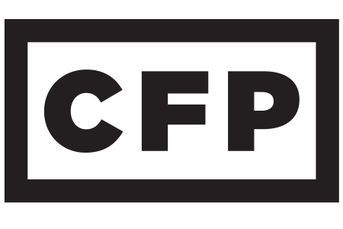Health-insurance reform uncertainty hampers advisers’ ability to counsel to clients
Advisers preparing new financial plans are flying blind when it comes to clients' health-care needs.
The failure of congressional Republicans to pass a health-insurance reform bill to replace the Obama administration’s Affordable Care Act has complicated the lives of financial planners and investment advisers in many ways.
The most obvious is that while the senators argue over the details of their plan to “repeal and replace” the ACA, advisers have no way to determine what impact the final reform bill might have on the health-care needs of clients, especially their needs in retirement.
Neither the House-passed reform bill nor the Senate reform bill outlined by Senate Republicans but not introduced for debate, changes Medicare, but the proposed slowing of the growth of Medicaid spending in both, and another change proposed in the House bill, could affect clients in their final years.
That’s because Medicare pays for only 120 days of nursing-home care, after which Medicaid steps in for those with limited financial resources. State Medicaid plans are required by federal law to cover nursing-home care, but the House bill mandates that states include home equity above $560,000 in determining Medicaid eligibility. Given the conservatives’ desire to at least slow the growth of Medicaid, this provision could make it into any compromise bill.
This could leave many upper-middle-class clients having to pay for nursing-home care from their own resources, and dispose of the family home, before they will be eligible for Medicaid. But until a health-care reform bill is passed, or defeated so the ACA remains the law of the land, advisers cannot advise their clients.
(More: 10 surprising facts about Medicare)
Even if the ACA stays in place, the tightening of Medicaid eligibility to slow the rate of growth of program costs remains a possibility.
In addition, under both House and Senate plans, people between the ages of 50 and 65 would pay more for insurance bought on the private exchanges, because insurance companies would be allowed to charge those buyers up to five times more for coverage than younger buyers, hurting those approaching retirement.
The second effect of infighting among the Republican senators is that not much else of the people’s business is being carried out. For example, debate on the shape of tax reform, which likely would do more to lift the economy than health-care reform, and which both parties agree is overdue, has barely begun. Not even the barest outline of a tax reform bill has been produced for debate in the House or the Senate.
(More: Health savings accounts becoming the new IRAs)
The Republican leaders in Congress promise that tax reform is coming, but financial advisers have no clue as to how that tax reform might affect their clients, so cannot begin to prepare their financial plans. Advisers preparing new financial plans, or revising old ones, are flying blind. They must prepare plans knowing they will likely have to be changed when Congress finally does its job, or they must put plans on hold.
Likewise, neither house has taken significant steps to increase spending on the nation’s infrastructure, which both parties in Congress seem to agree is necessary, given the highways and bridges in need of repair or upgrading, and the significance of good infrastructure in improving the nation’s productivity.
The delay in getting to tax reform and infrastructure funding must eventually have an impact on the bull market, the most recent leg of which has been carried on the hope that the Trump agenda will lift the economy enough to justify the current high price/earnings multiples. If signs of progress on the agenda are not soon forthcoming, current stock prices will be difficult to justify, likely leading to a correction.
All financial advisers can do until there is progress on health-care reform, tax reform and infrastructure spending is to be cautious in the advice provided to clients, and to pay careful attention to Congress when serious debate on these issues gets under way.
Learn more about reprints and licensing for this article.








